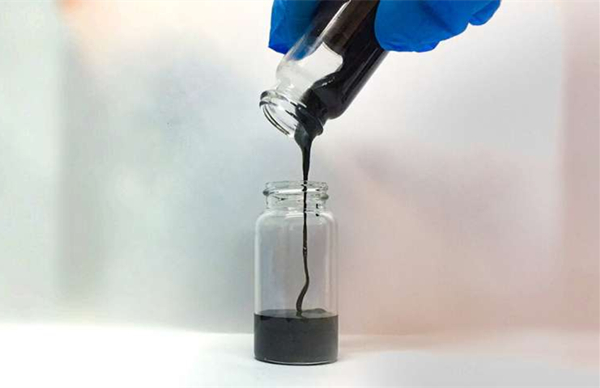What is the lithium polymer battery swelling?
Aug 13, 2019 Pageview:1587
Lithium Polymer batteries (LiPo) are the most recent battery chemistry. And for that, there is no doubt they are the best in terms of performance and durability.
However, they have one significant disadvantage – swelling. In other words, they become puffed up and lose their standard size. This is something normal and always happens. Sometimes you cannot control this condition because what may cause it could be internal factors. Sooner or later, your LiPo is going to swell.
It is important to understand this chemistry to prepare for anything that might happen. Even if you try your best to use the battery in the best manner possible, you will still face swelling issues.
Many people don’t understand what the batteries swell and what to do about it. Many will continue using, oblivious of the risks.
Why do lithium polymer batteries swell?
As stated above, LiPo swelling is not strange. If you have been using electronic devices for a while, then you should understand very well what this means. Well, in this technology era, you might have held a laptop for two or three years.
You will discover the battery does not seem to fit in the device as it used to. LiPos are the best batteries for drone. And even with their power and greatness, they are not immune to puffing.
But why do they swell? Before you get into this, it is crucial to start from the basic. We can then built a better understanding.
Battery construction
There are different individual components in the battery that interact to make things work. Generally, batteries are made of three necessary components:
-The negative end. A minus sign on your battery represents this end. It is a negatively charged electrode that allows electrons into an electrical device. In a primary cell, it is the positively charged electrode supplying current. Put, current flows out of the battery from the cathode.
-The positive end. This is known as the anode and is represented by a positive (+) sign. Current flows from the outside into the battery through the anode. It carries charged electrons from making the device work properly.
-The electrolyte solution. Lithium ions need to move from the anode to the cathode during recharge and from the cathode back to the anode during discharge. Electrons in the LiPo are negatively charged. As such, the positive current flowing in is the same as the electrons flowing out. For this to happen, there must be some form of medium, and that is where the electrolyte solution comes in.
Batteries use the migration of ions from the positive to the negative ends and back to conduct electricity. The electrolyte stands as a medium for the transfer. LiPo batteries are a bit different from traditional lithium ion batteries. They use a solid polymer electrolyte, making them more powerful and durable.
In addition to the electrolyte, they have a polymer separator. This part ensures that positive and negative terminals never come into contact by any means. If that were to happen, then battery short-circuiting would be unavoidable.
As the battery continues to work, the electrolytes go through a phenomenon of electrolyte decomposition. It breaks down into its components.
How does it affect the battery?
In most cases, the decomposition causes the production of gases, including oxygen. The polymeric nature of LiPo batteries means they also produce carbon dioxide (CO2) and carbon monoxide (CO).
Since the battery is sealed, there is nowhere these gases can go. They tend to stay inside the casing, making the whole thing to expand and swell. The more gases are produced with continued decomposition, the more swelling you will witness on your batteries.
One thing you can be sure of is that LiPo swelling will always happen. There is nothing you can do about the swelling process.
Is a swollen lithium polymer battery dangerous?
A swollen LiPo is like a set bomb. Simply put, it is very dangerous. Although many people may continue using it a few more times when they are puffed, it is recommended you don’t. If possible, look for a replacement and carefully dispose of the swollen one.
There have been many cases of batteries exploding. It becomes even more dangerous when the fire-sensitive oxygen is involved.
Besides that, there is a high chance of the casing failing. As any small impact, and it may rupture, causing the components to come in contact with open air. You can be sure of an explosion. One thing the components inside a LiPo battery should not come in contact with is the open environment.
Such batteries are very sensitive to flammable materials. If the temperature rises when in use or charging, the battery might explode.
What do you do when your lithium polymer battery is swollen?
The best thing to do is to stop using the battery. Although you can continue using it for some time, you have to very careful.
But first, understand the conditions that may increase the swelling risk. Here are some:
· Overcharging. This increases parasitic reactions between the electrodes and electrolyte. Heat and gases are released, causing an explosion. It becomes even more dangerous if the battery is swollen.
· Poor cell quality. There are a lot of fake batteries on the market today. Always check to ensure the quality of the battery.
· Mechanical damage. Dropping your battery's damages. Apart from that, some damages are induced during assembly as well.
· High temperatures. Avoid using your batteries under extreme heat.
· Over-discharge. Self-discharge is bad for your batteries.
So how do you fix swollen batteries?
Just don’t.
Buy a new battery and dispose of the old one. And if you must use it perhaps because you don’t have a new one yet, always do so in a proper environment. Charge it in fireproof condition and never leave them.
Tips for disposing of a puffed LiPo
· Discharge it completely ( connect it to a light bulb, or immerse in a bucket of saltwater)
· Find your nearest recycling drop-off point and leave it there.
Puffed LiPo batteries are very dangerous. It is important to be on the lookout for any abnormalities and act appropriately. Take good care of your battery by charging properly at the right temperature and store it good conditions.
- Prev Article: How to know more about Li-ion batteries for PV systems
- Next Article: You Should Know More about Lithium-ion Battery Charger Module
Leave Message
Hottest Categories
-
Hottest Industry News
-
Latest Industry News











